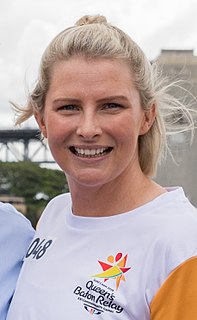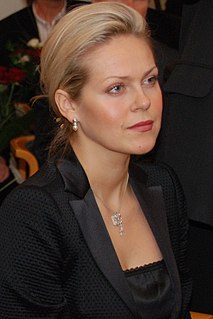A Quote by Robin Hobb
When both my editors say 'This is really bad, you need to change this,' I ignore that at my peril.
Related Quotes
The most important thing for a writer to do is to write. It really doesn't matter what you write as long as you are able to write fluidly, very quickly, very effortlessly. It needs to become not second nature but really first nature to you. And read; you need to read and you need to read excellent books and then some bad books. Not as many bad books, but some bad books, so that you can see what both look like and why both are what they are.
The problem is that it has become politically awkward to draw attention to absolutes of bad and good. In place of manners, we now have doctrines of political correctness, against which one offends at one's peril: by means of a considerable circular logic, such offences mark you as reactionary and therefore a bad person. Therefore if you say people are bad, you are bad.
It took a lot of guts to change it and say 'I don't like the life that I'm living and I don't like the swimmer I am', so let's change it completely and say 'Look, I've got to learn to love myself'. And that's been a really hard thing to do because when you've done a performance that you're not proud of and the public and the media have criticized you.....people are really quick to make judgements so it was tough to say 'Well I don't care what you have to say. I'm going to do this for myself and if you don't like me after this, well then, it's too bad'.
In a print interview, as you may or may not know, they [editors] can do whatever they want. And they do. This is why most people are more hesitant to do print, because they can change it, and they do change it. They even change things that are in quotation marks, which is a pet peeve of mine. I've said to numerous reporters, "Would you read me back my direct quotes?" And they always say no. They always say that's against the policy.
We need quantitative assessments of the success of education. We need certification and qualifications both for teachers and for pupils. It is not a choice between quantity and quality, between access and excellence. Both of these will happen together if people really do believe in the importance of education to change lives.
Sometimes directors come to me when I have to play some horrible thing, scary or hysterical or crying; they ask, 'Did you study somewhere to be an actress?' No, this is life. That's why I think I don't want to say you need a really bad experience to be a good artist, but bad experiences in your life say something.






































